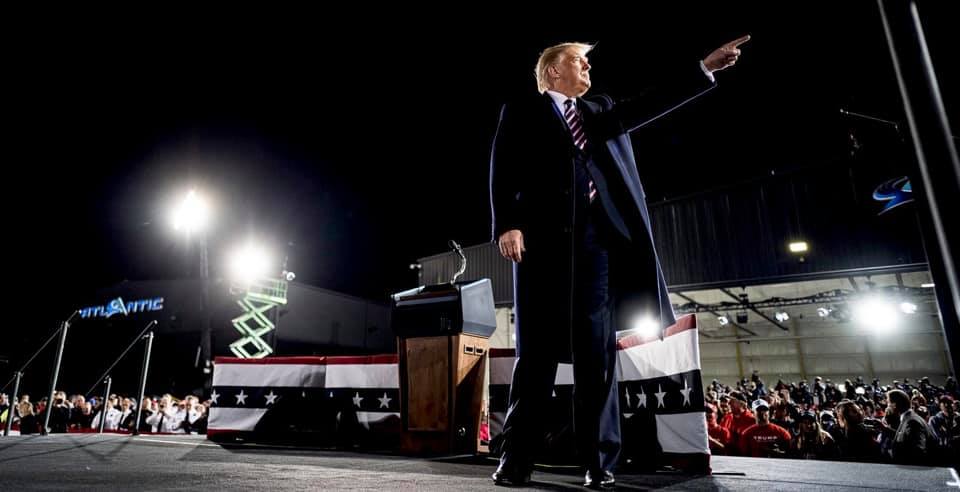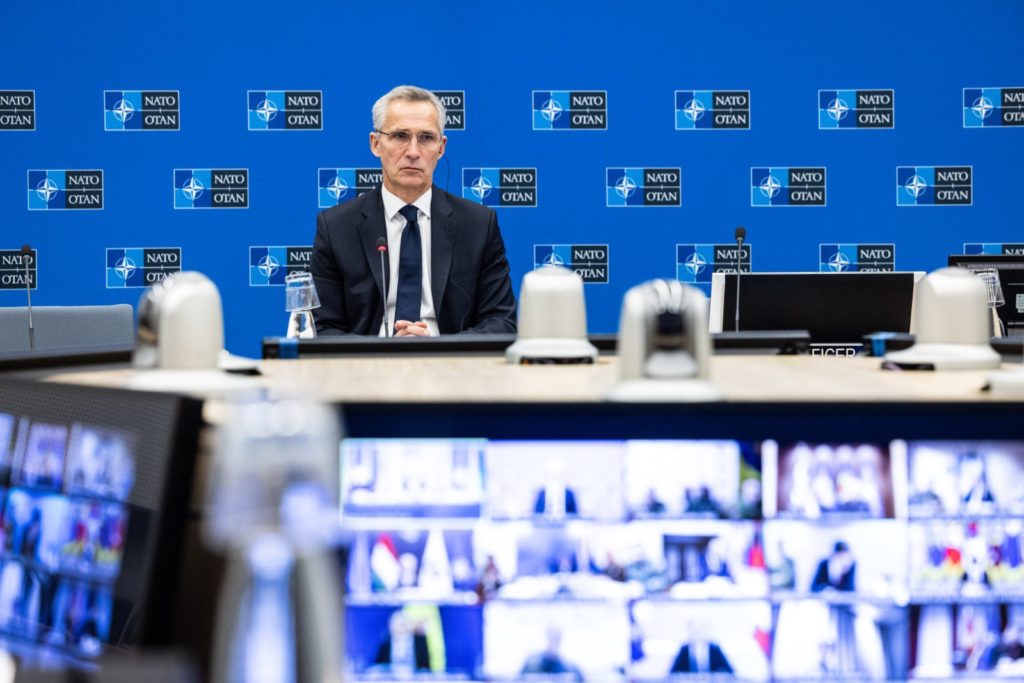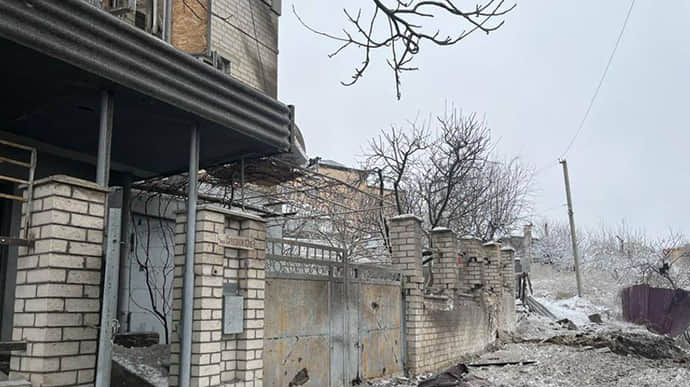J.D. Vance Roasted for Trying to Defend Trump’s Economic Nonsense
J.D. Vance crashed and burned during an interview on CNBC Thursday where he couldn’t back up Donald Trump’s plans for tariffs on foreign goods, or his own conservative economic populist ideas.CNBC’s Becky Quick gave Vance the opportunity to refute a misconception about Trump’s economic policies, and Vance quickly spouted off some noneconomics—only to get brutally fact-checked. “Well, I think one of the things I think they say is for example about Donald Trump’s economic policies is that somehow they’re going to jack up inflation,” Vance said. “Which is rich coming from Kamala Harris whose economic policies have directly led to inflation.”“But tariffs are inflationary,” Quick replied. Economists across the board have said Trump’s plan to impose 10–20 percent tariffs on all U.S. imports, and a 60 percent on imports from China, will raise prices for consumers. During Tuesday’s presidential debate, Harris dubbed Trump’s tariffs effectively a “sales tax” that could cost households up to $4,000 per year. Trump seemingly hadn’t understood what she meant and cried that he had no “sales tax.” Vance tried to save his answer, “Well, not always—”“They’re either inflationary, or people aren’t buying the products anymore,” Quick said simply.Vance explained that tariffs would increase prices in the short term, but over the course of multiple years, the prices would go back down as U.S. manufacturers were induced to make investments in a particular industry.CNBC’s Andrew Ross Sorkin cut in to point out that Trump’s proposed tariffs did not target any industry in particular and would likely raise prices across the board, leaving U.S. manufacturing scrambling to pick up the slack in every sector.“There are certain industries that unfortunately we don’t have. Now wouldn’t it be great if our country were to invest in some of these industries that we’re missing on the manufacturing side? But the amount of time it may very well take to ‘induce’ every, every industry to invest here to manufacture, that’s the complication with the plan,” Sorkin said. Sorkin asked whether Trump planned to use his broad tariffs as a “negotiating cudgel” with China for other things, or if Americans could expect them to go into effect. “I do think that it’s a negotiation,” Vance acquiesced, but then went right back to claiming that tariffs would not increase prices in the long term. He also claimed that because Trump had imposed tariffs narrowly during his first presidential term, they could also be imposed broadly without negative effects.Vance later turned to his favorite subject, immigration, and seemed particularly excited (maybe a little too excited) to get in a point about his favorite city to complain about: Springfield, Ohio.“If the path to prosperity was flooding your nation with low-wage immigrants, then Springfield, Ohio, would be the most prosperous country—most prosperous city in the world; America would be the most prosperous country in the world,” Vance said.Here, Vance completely ignores the fact that the United States … is one of, if not the most prosperous country in the world. The U.S. has the highest global gross domestic product, at $25.43 trillion. More to the point, there is plenty of evidence that immigrants drive economic growth by filling more jobs and spending more money—this is true in Springfield. It’s also worth noting that here, Vance is speaking about immigrants generally, not undocumented workers. It appears that Vance’s anti-immigrant politics and doom and gloom perspective about the country he hopes to run have caused him to elide some plain economic facts—and this became increasingly clear as Vance’s interview went on.When asked what the first regulatory actions of the Trump administration would be, Vance was quick to answer: “Drill, baby, drill!”Vance launched into a lengthy explanation of the importance of increasing natural gas drilling, and dismissed the claim that the country was already in a “renaissance” of American energy production as “preposterous.” “It’s been a total disaster under the Biden-Harris administration,” Vance said. “And again, you just look at the energy costs. You look at how much Americans are paying for energy compared to three years ago. If it was so successful, then why are Americans payin’ 40 percent higher? When we’re sitting in Pennsylvania—we’re sitting on the Saudi Arabia of natural gas!”“We’re producing more crude oil than any country. Ever,” Quick said, sounding slightly exhausted. “We’re producing a lot less crude oil than we could be,” Vance replied, explaining that the U.S. is producing far fewer barrels under Harris than it would be under Trump.

J.D. Vance crashed and burned during an interview on CNBC Thursday where he couldn’t back up Donald Trump’s plans for tariffs on foreign goods, or his own conservative economic populist ideas.
CNBC’s Becky Quick gave Vance the opportunity to refute a misconception about Trump’s economic policies, and Vance quickly spouted off some noneconomics—only to get brutally fact-checked.
“Well, I think one of the things I think they say is for example about Donald Trump’s economic policies is that somehow they’re going to jack up inflation,” Vance said. “Which is rich coming from Kamala Harris whose economic policies have directly led to inflation.”
“But tariffs are inflationary,” Quick replied.
Economists across the board have said Trump’s plan to impose 10–20 percent tariffs on all U.S. imports, and a 60 percent on imports from China, will raise prices for consumers. During Tuesday’s presidential debate, Harris dubbed Trump’s tariffs effectively a “sales tax” that could cost households up to $4,000 per year. Trump seemingly hadn’t understood what she meant and cried that he had no “sales tax.”
Vance tried to save his answer, “Well, not always—”
“They’re either inflationary, or people aren’t buying the products anymore,” Quick said simply.
Vance explained that tariffs would increase prices in the short term, but over the course of multiple years, the prices would go back down as U.S. manufacturers were induced to make investments in a particular industry.
CNBC’s Andrew Ross Sorkin cut in to point out that Trump’s proposed tariffs did not target any industry in particular and would likely raise prices across the board, leaving U.S. manufacturing scrambling to pick up the slack in every sector.
“There are certain industries that unfortunately we don’t have. Now wouldn’t it be great if our country were to invest in some of these industries that we’re missing on the manufacturing side? But the amount of time it may very well take to ‘induce’ every, every industry to invest here to manufacture, that’s the complication with the plan,” Sorkin said.
Sorkin asked whether Trump planned to use his broad tariffs as a “negotiating cudgel” with China for other things, or if Americans could expect them to go into effect.
“I do think that it’s a negotiation,” Vance acquiesced, but then went right back to claiming that tariffs would not increase prices in the long term. He also claimed that because Trump had imposed tariffs narrowly during his first presidential term, they could also be imposed broadly without negative effects.
Vance later turned to his favorite subject, immigration, and seemed particularly excited (maybe a little too excited) to get in a point about his favorite city to complain about: Springfield, Ohio.
“If the path to prosperity was flooding your nation with low-wage immigrants, then Springfield, Ohio, would be the most prosperous country—most prosperous city in the world; America would be the most prosperous country in the world,” Vance said.
Here, Vance completely ignores the fact that the United States … is one of, if not the most prosperous country in the world. The U.S. has the highest global gross domestic product, at $25.43 trillion. More to the point, there is plenty of evidence that immigrants drive economic growth by filling more jobs and spending more money—this is true in Springfield. It’s also worth noting that here, Vance is speaking about immigrants generally, not undocumented workers.
It appears that Vance’s anti-immigrant politics and doom and gloom perspective about the country he hopes to run have caused him to elide some plain economic facts—and this became increasingly clear as Vance’s interview went on.
When asked what the first regulatory actions of the Trump administration would be, Vance was quick to answer: “Drill, baby, drill!”
Vance launched into a lengthy explanation of the importance of increasing natural gas drilling, and dismissed the claim that the country was already in a “renaissance” of American energy production as “preposterous.”
“It’s been a total disaster under the Biden-Harris administration,” Vance said. “And again, you just look at the energy costs. You look at how much Americans are paying for energy compared to three years ago. If it was so successful, then why are Americans payin’ 40 percent higher? When we’re sitting in Pennsylvania—we’re sitting on the Saudi Arabia of natural gas!”
“We’re producing more crude oil than any country. Ever,” Quick said, sounding slightly exhausted.
“We’re producing a lot less crude oil than we could be,” Vance replied, explaining that the U.S. is producing far fewer barrels under Harris than it would be under Trump.



